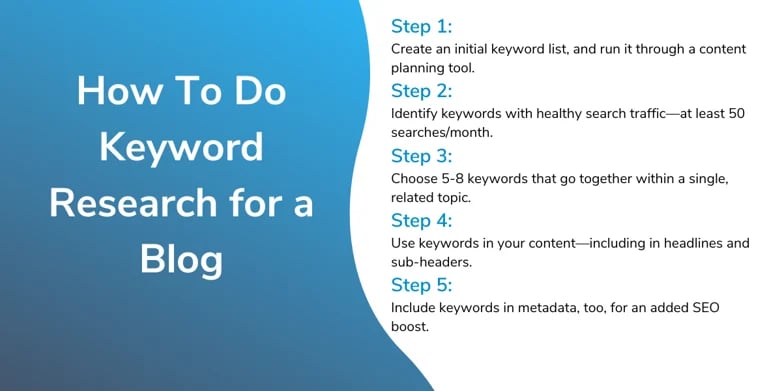How to Do Keyword Research for SEO in 2025 — Complete Guide for Beginners
Master keyword research for SEO in 2025 with proven tools, strategies, and tips to boost rankings and drive targeted traffic.
Mbniram
6/1/20254 min read


How to Do Keyword Research for SEO in 2025 — Complete Guide for Beginners
Keyword research for SEO is one of the most important steps in building a strong online presence. It helps you understand what your audience is searching for on Google and how you can create content that matches their needs. In 2025, with search engines becoming smarter, finding the right keywords takes more than just guessing. Instead, you need to use smart strategies, deep analysis, and trusted tools to stay ahead in the game.
A solid SEO keyword strategy can improve your organic search traffic, boost your rankings, and attract the right visitors. If you want to master keyword planning for websites and stay updated with USA SEO market trends, this guide is for you. It teaches you what keywords to use, how to plan content around them, and which tools to leverage. Furthermore, it includes examples and essential keyword research tips for beginners.
What is Keyword Research?
Keyword research means finding the words people search for in Google. These are the phrases you want your website to rank for. Learning how it works helps you create content that search engines can understand and rank.
You use tools to find those keywords, then strategically plan your content to match them. That’s how you build a smart content marketing strategy that attracts real traffic. It’s a fundamental skill in beginner SEO techniques, and it remains important even as tools evolve.
Why Keyword Research is the Backbone of SEO
Every website needs the right words to be seen. Keywords connect your site with people searching for answers. That’s why “why keyword research is important” is such a common question.
With the right keyword plan, you can beat your competition and achieve steady growth. Think of it as a bridge between what people search for and what you write.
Keywords vs. Topics: What’s the Difference?
Keywords are specific search terms, while topics are broader themes. For example, "best shoes for hiking" is a keyword. However, "hiking gear" is the topic.
Good content includes both. That way, you cover more ground and improve your chances of being discovered. You can then build content clusters around main topics.
Why Keyword Research is Important for SEO
In 2025, search is smarter. Search engines understand meaning, not just words. That’s why using tools for finding blog keywords helps you stay competitive.
Strong keyword research gives your content a clear direction. It tells you what to write about, how to write it, and how to measure success.
Understand User Intent
Search intent refers to understanding what people want when they type a keyword. Are they buying? Learning? Just browsing? Knowing this helps you match your content to their goals.
This is the key to understanding how to analyze keyword intent. When your content aligns with user intent, your site performs better.
Track Trends and Stay Competitive
In dynamic markets like the USA, trends evolve rapidly. In 2025, more searches are happening on mobile devices and through voice search.
By tracking these shifts using Google Trends, you can stay ahead of your competition.
Drive Qualified Traffic to Your Site
Not all traffic is good traffic. You want visitors who are genuinely interested in your offer. Choosing the right keywords helps you attract qualified leads.
It’s an essential part of building a focused keyword plan that converts.
Essential Elements of Effective Keyword Research
To master keyword research, you need to understand what makes a keyword useful. These key factors include:
Relevance
Search Volume
Competition Level
Search Intent
Let’s break them down.
Relevance
A keyword must align with your business or content. That’s why learning how to find relevant keywords always starts with your audience.
Relevance ensures that your content serves real user needs.
Search Volume
Search volume refers to how often a term is searched. Use Google Keyword Planner to check average monthly searches.
Too low, and no one sees your content. Too high, and competition may be overwhelming.
Keyword Difficulty & Competition
Keyword difficulty scores show how hard it is to rank for a keyword. Beginners should focus on low-difficulty terms while building authority.
This is where SEO competition analysis becomes crucial.
Search Intent
Each keyword serves a purpose. Determine whether the user wants to buy, learn, or explore. Matching this intent results in more clicks and better on-site engagement.
Keyword Research Tools You Should Be Using
Here are the top keyword tools for 2025:
Tool
Type
Strength
Free
Paid keyword focus
Ahrefs / SEMrush / Ubersuggest
Paid
Full-featured SEO suites
Free
Trend analysis
Freemium
User-driven questions
Browser
Instant insights
Use these tools to guide your strategy effectively.
Step-by-Step Keyword Research Process
Follow these six steps to get started:
Brainstorm Topic Clusters — Start with broad themes and break them down into subtopics.
Use Keyword Tools — Collect relevant keywords with decent volume and low difficulty.
Analyze Search Intent — Check what users want when they search those terms.
Identify Long-Tail vs Short-Tail — Long-tail is better for beginners due to lower competition.
Filter Smartly — Remove terms that are too hard or irrelevant.
Check SERPs & Competitor Rankings — See what’s already ranking and identify gaps.
Keyword Clustering: Organize for SEO Success
Organizing keywords into clusters makes your site more structured and efficient.
What is Keyword Clustering?
Keyword clustering means grouping related terms into one content piece. It helps you rank for multiple terms at once and builds topical authority.
How to Create Clusters
Start with a core theme. Add supporting keywords. Use internal links to connect the pieces, boosting your SEO.
How to Choose the Right Keywords for Your Website
Focus on intent, value, and competition:
Commercial vs. Informational — Match content to buying vs. learning intent.
Low-Hanging Fruit — Target easy-to-rank keywords first.
Local SEO Keywords — Include city/location for geographic targeting.
Real Examples of Keyword Research (Mini Case Studies)
Travel Affiliate Site: Ranked for “best travel backpacks for women” by clustering gear topics.
Local SEO Agency (Healthcare): Used terms like “urgent care clinic near me” and optimized for voice.
eCommerce Store: Targeted “affordable wireless earbuds under $50” for high conversions.
Common Keyword Research Mistakes to Avoid
Avoid these pitfalls:
Ignoring user intent.
Only chasing high-volume keywords.
Not updating your strategy regularly.
Advanced Tips for Keyword Research in 2025
To stay ahead, use:
AI tools for predictive trends — Anticipate what people will search next.
Voice Search Optimization — Use natural, conversational queries.
Semantic SEO — Cover full topics with depth, not just isolated keywords.
Final Thoughts: Build Your Keyword Strategy and Grow Traffic
SEO starts with smart words. With a structured plan and the right tools, you can grow traffic and authority.
💡 Download Our Free Keyword Research Template
🛠️ Get SEO Services Tailored to Your Business
Start now with one topic and grow from there.
Services
Affordable solutions for your digital marketing needs.
Boost
Optimize
+923706733851
© 2025. All rights reserved.
